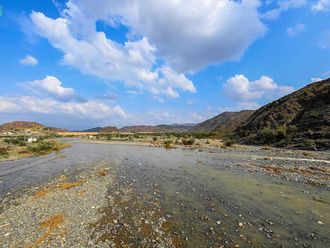Manama: Saudi Arabia has given the international community assurances about the Haj season, saying that it has taken stringent measures to prevent an Ebola outbreak in the kingdom when around three million people congregate in one place.
The authorities said the main drive is on pilgrims coming from the countries hit by the potentially deadly virus, but insisted they were confident the situation would be under control.
Deputy health minister for planning and development Mohammad Al Khasheem said that all precautionary measures to prevent an Ebola outbreak in the Kingdom had been taken.
He told the media that the ministry would focus on all foreigners coming into the kingdom through 15 air, land and sea entry points that have been reinforced with human resources, equipment and medical needs as a prime line of defence.
Community and family medical consultants are being deployed to work around the clock at King Abdul Aziz International Airport in Jeddah, the main entry points for pilgrims, and Prince Mohammad airport in Madinah, and monitor emergency cases.
Hassan Al Bashri, the World Health Organisation (WHO) representative in Saudi Arabia, said the health authorities in Saudi Arabia have consulted with their counterparts in Nigeria, Congo and Kenya, over measures and precautions to be taken.
Saudi Arabia had stopped issuing Umrah and Haj visas to citizens of Sierra Leone, Liberia and Guinea, the three African countries worst hit by the Ebola virus.
No passenger planning to perform Haj, but suspected of carrying the Ebola disease, would be allowed to board a plane heading to Saudi Arabia, Al Bashri said.
Preventive measures also include installing special equipment that would screen passengers at five points before boarding the plane to check if they had the virus.
Nationals from Western African countries who arrive in Saudi Arabia for the pilgrimage would be closely monitored throughout their stay and until they leave the kingdom.
The pilgrims would also be placed under close surveillance to check out for any symptoms linked to the virus.
Special forms prepared by the health ministry will have to be filled in by the pilgrims in order to check whether they were a potential risk through friends or the infected places they might have visited.
“A WHO team in the three countries — Kenya, Nigeria and Congo — is coordinating on a daily basis with a health ministry liaison officer in Saudi Arabia over the general conditions there,” Al Bashri was quoted as saying by local reports.
Other measures endorsed by the health authorities include ensuring adequate preparations to deal with potentially hazardous situations.
“There is no reason to be under constant worry,” Al Bashri said. “The health sector is fully ready and has adequate laboratories and trained human resources,” he said.












